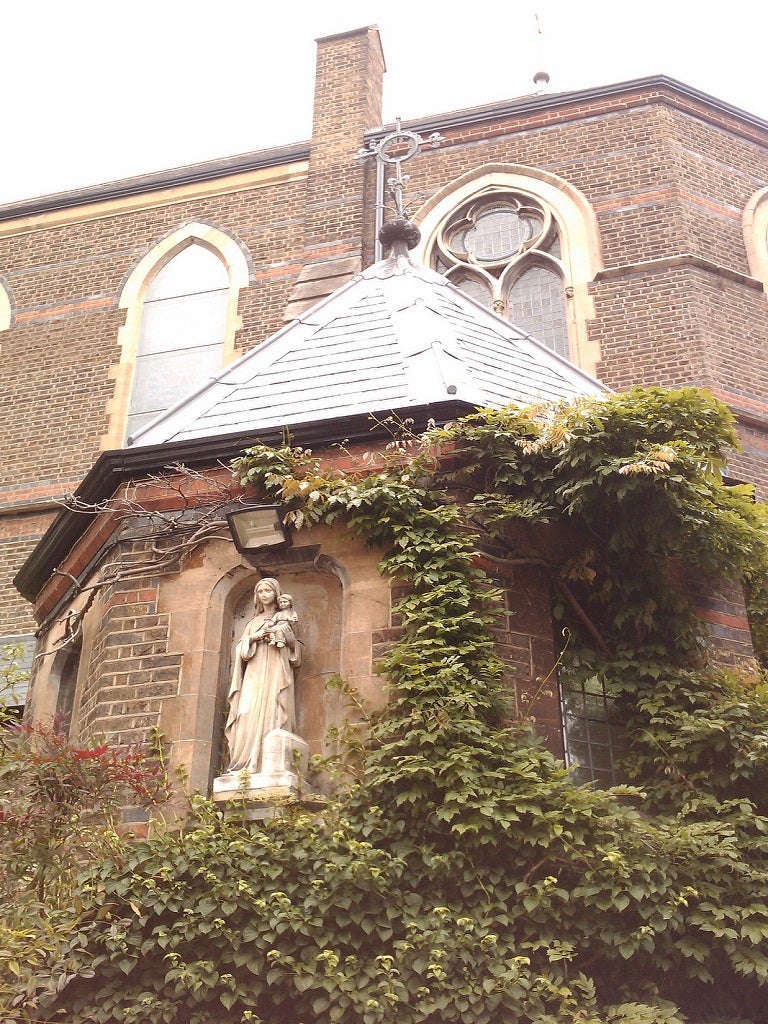Heythrop College (University of London)

History: Celebrating its 400th birthday in 2014. Founded in 1614 at Louvain in Belgium in order to train young English Jesuits for the clergy and relocated to the relative safety of Stonyhurst, Lancashire in the eighteenth century. In 1926, the college moved to Heythrop in Oxfordshire, a name it was to keep despite relocating to London and becoming part of the University in London in 1970.
Address: In the heart of swanky Kensington on a charming square just behind Kensington High Street. The grounds behind the college form a mini-campus that is a green oasis in the heart of London. The square itself is historic, with buildings dating from the early eighteenth century and containing the former homes of William Thackeray, Edward Burne Jones and John Stuart Mill.
Ambience: Heythrop is a small, friendly college. It is open to students of all faiths or those with no religious affiliation. The size of the college and the tutorial system allow students to build strong working relationships with staff.
Who's the boss? Michael Holman SJ is principal.
Prospectus: 020 7795 6600 or visit the website here.
UCAS code: H48
What you need to know
Easy to get into? Between 280 and 320 UCAS points for all undergrad programmes, except for the BA in philosophy, which asks for a minimum of 300 points.
Vital statistics: Specialises in theology and philosophy, combined with psychology. There are more than 800 students studying for both undergraduate and postgraduate degrees and 30 research students. There are around the same number of undergraduates as postgraduates.
Added value: Heythrop houses the Library of the Jesuit Province, a national treasure. The best library in the country for theology and one of the best for philosophy, its contents range from unique pre-19th century imprints to the very latest publications in the field. Its membership of the University of London means that all students can also use Senate House Library. As well as the Heythrop Students’ Union, enrolled students automatically become members of the University of London Union, and can use its social and sports facilities across the city.
Teaching: 77 per cent of students questioned by 2010’s National Student Survey were satisfied with teaching at the college.
Any accommodation? Yes - Heythrop now has its own halls of residence in leafy gardens on the Kensington site but students are not permitted to stay in their rooms during the Christmas holidays. Places are also available in the University of London intercollegiate halls. Prices vary but catered living at Heythrop costs £6,500 per year.
Cheap to live there? Being London, naturally it isn't. Average rents locally are £120 per week. College accommodation is comparable to others in central London but there is a big saving on travel costs.
Transport links: Nearest tube is High Street Kensington, and there are regular bus services to and from Kensington High Street.
Fees: £9,000 per year for full-time home undergraduates.
Bursaries: A range of bursaries, scholarships and grants is available. £1,250 per year will be awarded to all students starting the Abrahamic religions course. Learners from families with an annual income lower than £25,000 will be eligible for financial support.
The fun stuff
Nightlife: Second to none. Students have access to the University of London's bars, but Kensington itself is an affluent area with more than its fair share of clubs, bars and restaurants. The Albert Hall is just 15 minutes away, and the bright lights of the West End are also within walking distance, offering bars, theatres and clubs galore.
Sporting facilities: None on-site but as Heythrop students automatically join the University of London's union they can use the facilities available there and join clubs.
Glittering alumni: Victorian poet Gerard Manley Hopkins; philosopher Bernard Lonergan, Freddie Copleston, the great historian of philosophy, and theologian Gerard J Hughes.
Join our commenting forum
Join thought-provoking conversations, follow other Independent readers and see their replies
Comments
Bookmark popover
Removed from bookmarks